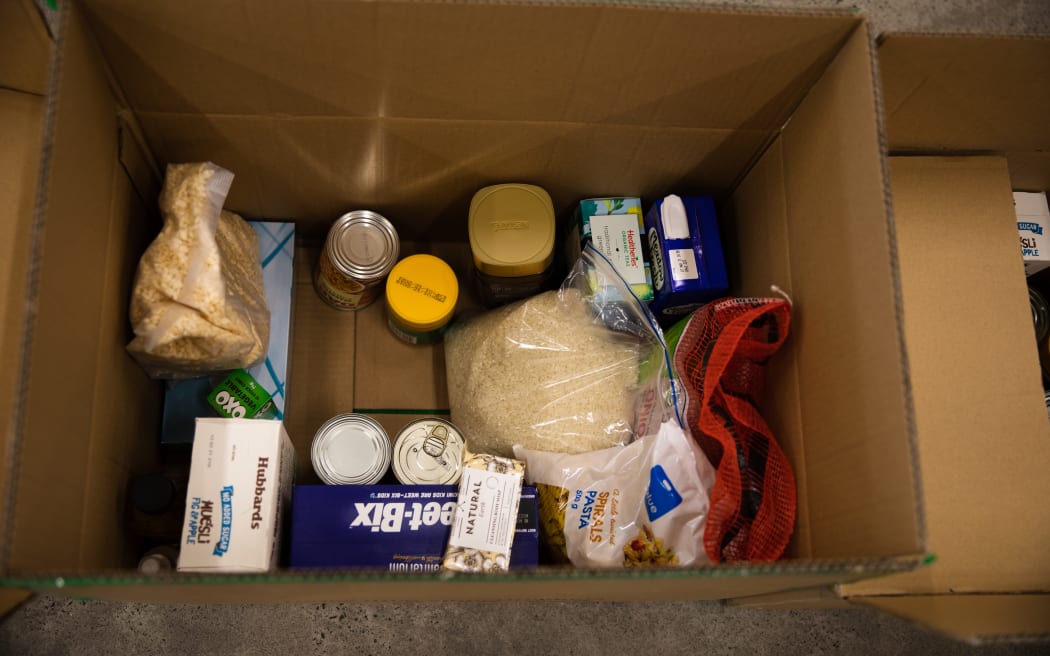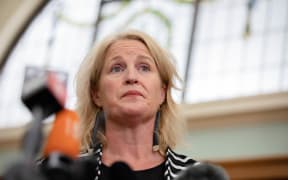
Stats NZ data shows three out of nine child poverty measures have increased meaning tens of thousands more children are going without household essentials. Photo: RNZ / Simon Rogers
Advocates are sounding the alarm over the government's approach to ending poverty saying it is lacking any real interest in the problem.
Data released by Stats NZ on Thursday found three out of nine child poverty measures had increased.
That means tens of thousands more children are going without household essentials such as shoes and doctor's visits and living in households with less than half the median income after household costs.
But Minister for Child Poverty Reduction Louise Upston said the coalition's focus on reducing the cost of living would help bring those numbers down.
Child Poverty Action Group incomes and economics spokesperson associate professor Mike O'Brien did not agree with the minister.
"This is not just a cost of living and inflation kind of issue, that won't cut the mustard. It needs a really solid commitment to reducing child poverty and we've not seen anything from this government that suggests they've got any commitment or any real interest in making a difference on child poverty."
O'Brien said the position of children living below the poverty line was likely worse than what the data showed.
That is because the data is between 12 and 18 months old, capturing information from July 2022 to June 2023.
He said that was why the government needed to urgently readjust benefit levels, increase family tax credits and expand that to beneficiaries, and support low wage earners.
There was no change in poverty measures for Māori, Pacific and disabled children.
But O'Brien said the government could not sit back on its laurels when it came to those particularly vulnerable groups.
"The gap between Māori and Pacific and the population as a whole, it's narrowed in one or two places, others there's not been any significant steps. So, there has to be a serious focus on improving the incomes and financial well-being for Māori and Pacific communities."
The Salvation Army is also concerned the coalition government does not have a clear enough plan to end child poverty.
Lieutenant Colonel Ian Hutson is the director of social policy and parliamentary unit and said food bank staff were seeing the rising material hardship data play out in real time.
He said there was a 40 percent increase in demand for food parcels in 2023 but the cost of living was making it difficult for the charity to keep up.
"People are coming to us and we don't have the food resources that we used to have to help so it's putting a huge pressure on all around the country for our food provision. We just don't have as much as we need at the moment."
Hutson said he was happy with the way the previous government was going, increasing wages and benefits, but high inflation undermined that work.
He wanted a real plan from the new coalition saying tax cut policies and changing benefit indexing was disappointing and did not help people really struggling.
The Commission for Children and Young People told Midday Report the government needed to make ending child poverty a project of national significance.
Mana Mokopuna Commissioner Dr Claire Achmad said the latest statistics were extremely worrying.
"We need to attend to the underlying drivers of poverty and we know right now incomes are not high enough... We also know that our income support rates, they need to lift too."
All the advocates RNZ spoke to argued that the drivers of poverty were complex and required massive action by the government.
Cutting cost of living will bring down child poverty numbers - Upston
But Minister for Child Poverty Reduction Louise Upston said it all came back to the high cost of living.
She said the coalition had inherited a challenging economic situation and a new approach that tackled the cost crisis was needed to end poverty.
"Providing tax relief, improving housing supply, making sure that those interest rates start to come down for those who have mortgages, making child care more affordable, a range of things we need to do that will have an impact on these child poverty rates."
Upston said the government's top priority was reducing living costs to ensure those who relied on welfare or were on the lowest incomes were looked after.




